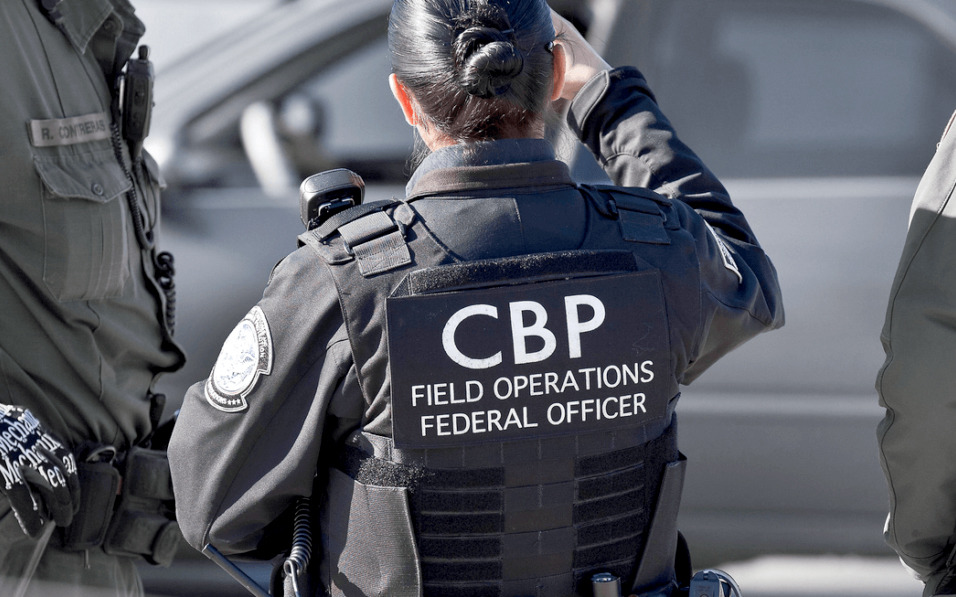The American Civil Liberties Union has shared data that shows U.S. border agencies are "asserting near-unfettered authority" to search and seize devices such as iPhones and iPads from anyone at points of entry without a warrant, violating two U.S. Constitutional amendments.
Customs and Border Protection (CBP) and Immigration and Customs Enforcement (ICE) are using searches and seizures "for purposes far afield from the enforcement of immigration and customs laws," the ACLU argued, citing court documents. This includes not just general law enforcement but creating "risk assessments," or acting on requests from other government agencies to target the devices of specific people.
Both organizations also claim the right to search a traveler's device for data about another person, which the ACLU says can be used against innocent U.S. citizens in order to pursue undocumented relatives, or the foreign contacts of journalists, scholars, and business partners. That data can be shared not just with other U.S. branches but foreign law enforcement.
"Warrantless and suspicionless searches of our electronic devices at the border violate the Fourth Amendment, which protects us against unreasonable searches and seizures - including at the border," the ACLU wrote.
"These searches also violate the First Amendment," it added. "People will self-censor and avoid expressing dissent if they know that returning to the United States means that border officers can read and retain what they say privately, or see what topics they searched online. Similarly, journalists will avoid reporting on issues that the U.S. government may have an interest in, or that may place them in contact with sensitive sources."
The ACLU is in the process of suing CBP and ICE on behalf of 11 people who had phones or laptops searched. The organizations should be obtaining warrants, it says, since while border agents can search for illegal or contraband items, mobile devices are different and contain far more personal data.
Apple has a stake in the case for multiple reasons, such as its general focus on privacy and encouraging customers to keep using its products and services. One Apple worker, Andreas Gal, recently filed a complaint through the ACLU, saying he was stopped at a checkpoint. There he was questioned about his work, including online privacy advocacy, and asked to turn over passwords for his phone and computer.
Gal asked if he could talk with Apple or a lawyer in order to address an Apple non-disclosure agreement, but was rejected and threatened with prosecution. He was only able to pass the border by surrendering his Global Entry card used to expedite screening.
 Roger Fingas
Roger Fingas







-m.jpg)






 Malcolm Owen
Malcolm Owen
 William Gallagher
William Gallagher
 Charles Martin
Charles Martin
 Christine McKee
Christine McKee
 Wesley Hilliard
Wesley Hilliard

 Andrew Orr
Andrew Orr








41 Comments
The headline misleads at the ACLU Is correct that current law allows Border agents an unfettered ability to search you and your belongings when you are entering America (as is the case in most countries in the world). Instead, the headline should read that the ACLU is proposing the US Supreme Court change the well established and clear and consistent rulings that there is a "border search exception" to the general warrant requirement and you have no reasonable expectation of privacy at the border. Border searches have NEVER required a warrant or probable cause in our nation's history for obvious reasons.
The ACLU and others are attempting to make a distinction that digital records should be treated differently. This is an unlikely outcome from the Supreme Court as it would effectively vitiate much of the efficacy of protecting the country at our borders.
I never take phones, computers or iPads with me when traveling outside the US. Why invite the scrutiny and why invite the possibility of seizure of these devices, if not by US law enforcement, by foreign immigration officers?
...and this discussion gets shut down by AI admins... about... NOW!